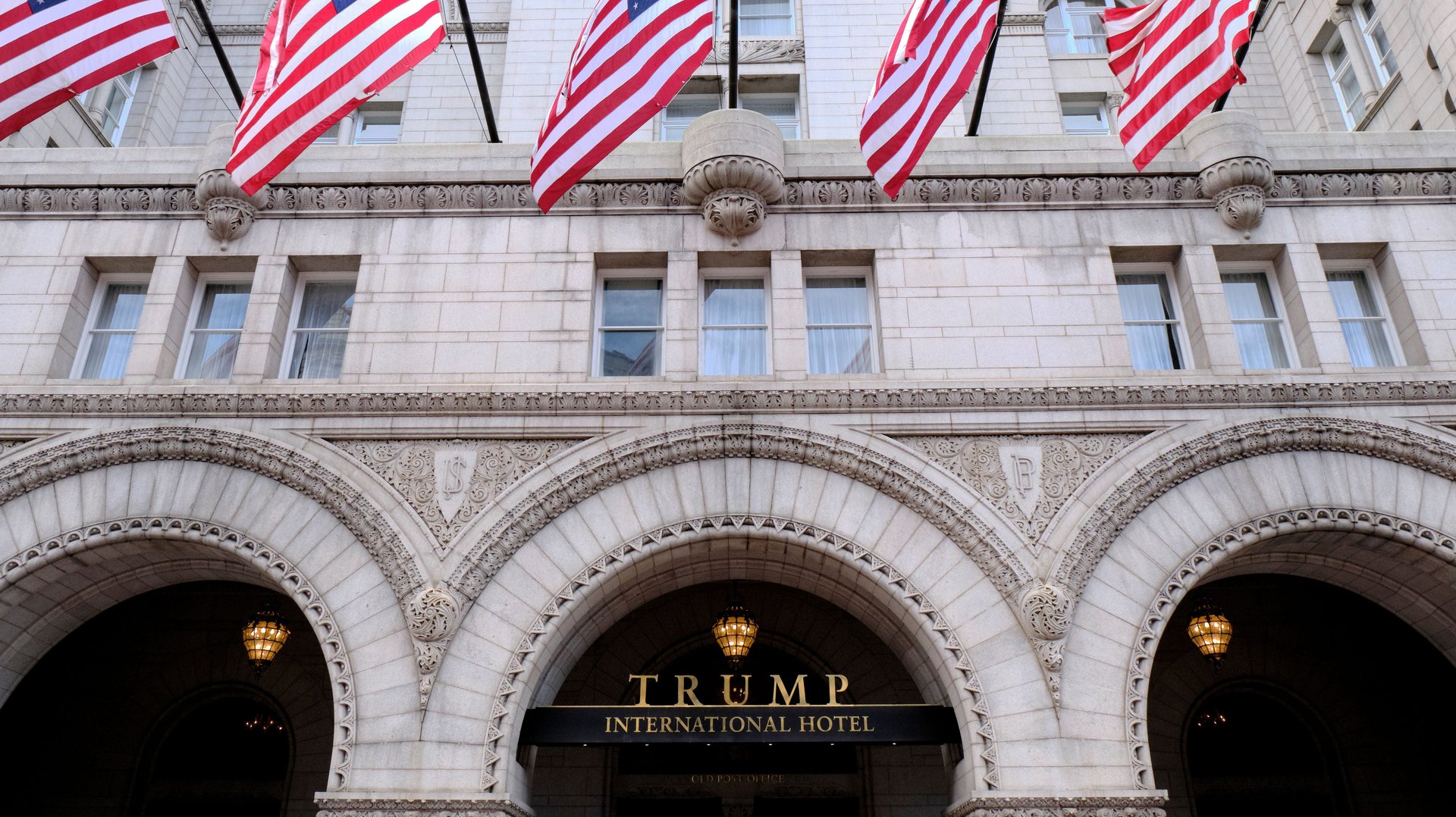Republicans have spent at least $4.7 million at Trump properties since he took office
The Republican National Committee, pro-Trump super PACs, and Republican political candidates spent almost $100,000 at the Trump International Hotel in Washington, DC during the first quarter of 2019, according to Quartz’s review of new Federal Elections Commission (FEC) filings.


The Republican National Committee, pro-Trump super PACs, and Republican political candidates spent almost $100,000 at the Trump International Hotel in Washington, DC during the first quarter of 2019, according to Quartz’s review of new Federal Elections Commission (FEC) filings.
The latest expenditures at the Trump hotel, just blocks from the White House, bring total spending by GOP entities, including Donald Trump’s own re-election committee, to about $4.7 million at Trump hotels, restaurants, and golf courses since he was elected. The total is part of an upswing that started last year.
In 2015-2016, Trump properties took in $13,530,000—98.6% of which came from Trump-related committees, per data compiled by the Center for Responsive Politics. In 2017-2018, Trump properties took in $4,550,600, 34% of which came from Trump-related committees; 36% came from the Republican party. None came from Democrats.
Trump’s campaign is funded by donors large and small, who are the ones that are actually paying these expenses at his properties. About 55% of his campaign’s recent funds came in contributions under $200.
Before 2015 , political spending at Trump-owned properties never exceeded $77,922 (2011-2012) in a single two-year election cycle:
Democrats spent a little over $1,000 at Trump properties during the 2016 cycle, and $9,943 during the one before that, but not a penny since:
The most recent reported expenditure at Trump’s DC hotel came on March 26, when Graves for Congress, the re-election committee for Rep. Tom Graves, a Georgia Republican with a soft spot for Trump, spent about $210 at the Trump International on “restaurant meals,” the committee’s latest FEC filings show. The Committee on Arrangements for the 2020 Republican National Convention spent $1,912.71 at the president’s private Palm Beach, Florida club Mar-a-Lago, according to a March 29 filing.
The first political group to spend money at the Trump International Hotel after Trump’s swearing-in was the Pete King for Congress committee, connected to the Republican congressman from the New York suburbs, with a meal for $118 dated Jan. 23, 2017. King, now an enthusiastic Trump supporter but once deemed him unfit for office, did not respond to a request for comment.
No law bars domestic political parties or individuals from spending at places owned by a sitting president’s commercial organization. There is debate about whether spending by foreign interests at Trump properties violates the emoluments clause of the US Constitution, a safeguard against federal officeholders accepting gifts from other governments and their leaders.
US presidents traditionally have tried avoid even the appearance of conflicts of interest while in office and have been expected to move at least a portion of their personal holdings into blind trusts. One example: After his election in 1976, Jimmy Carter sold his Georgia peanut farm over potential ethics concerns and insulated himself from any knowledge of the farm’s financial performance while president.
Trump has not set up a blind trust, nor has he sold any of his assets since becoming president. The Trump Organization profits every time someone books a room at his hotels or buys a bottle of Trump Ice, the president’s own brand of bottled water—on which the Donald J. Trump for President committee reported having spent about $2,500 during the last election cycle.